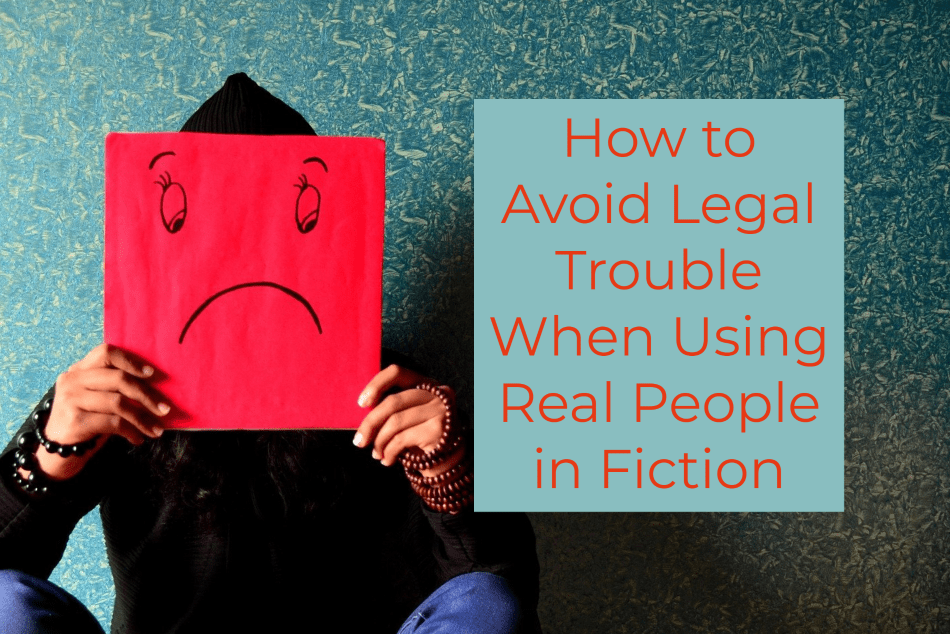Years ago, comedian Carol Burnett sued the National Enquirer for libel because they had defamed her name and besmirched her reputation. She claimed they were making untrue statements about her that could have negative financial consequences. Her lawyers successfully argued that the Enquirer was at fault: they had been negligent with their fact-checking and were being purposefully malicious.
But what about real people in the made-up world of fiction?
Says Albert Camus, “Fiction is the lie through which we tell the truth.” Novelists are generally aware of how much of real life and how many real people work their way into their books.
Be careful. Real people can also be libeled in a fictional universe.
Maybe in a novel, a writer chooses to cast their story with colorful real people. Jackie O. or Cardi B attends their protagonist’s fabulous birthday bash. Perhaps the author’s larger-than-life neighbor Jane also makes an appearance: she shows up and, after a few drinks, tosses one of them in Robert Downey Jr.’s face. Where’s the harm in any of this? It’s fiction.
The dead don’t sue
Jackie O.’s appearance is just fine. A dead person does not suffer damages if their reputation is tarnished. It doesn’t matter if Jackie is as polite and refined as we expect or if she drunkenly dons a lampshade on her head and shocks everyone by dancing the lambada.
A public figure is fair game
Living celebrities Cardi B and Robert Downey Jr. might also attend this novel’s fictional bash. In real life, their career goals involve fame. They want attention, so it’s much more difficult for them to prove their privacy has been invaded. For these famous people to sue, they must prove actual malice. In this situation, malice doesn’t mean you were trying to hurt someone, but that you wrote something with the knowledge that it was false, or with reckless disregard for whether it was false.
There should be no legal issues if a real person—famous or not—is written about in a positive or neutral way.
Satire is protected
In the realm of cultural criticism, satire may critique, mock, or shame public figures. Says HG.org Legal Resources, “This form of commentary is usually politically charged and blurs the line between truth and outrageousness. In some satirical forms, the comments are intentionally injurious and offensive. However, these otherwise offensive statements may include protected ideas and opinions.”
That means the publisher of Hustler could run a parody in which Jerry Falwell Sr. was portrayed as an incestuous drunk. The Supreme Court ruled this was protected speech because Falwell was a public figure and also that the outrageous satire was abundantly evident: most readers of the content would not mistake it for the factual truth.
Un-famous real people
Here’s where it can get sticky. Using real people in your fiction—whether they are correctly named or not—can be legally hazardous. If an author includes enough details that a specific fictional character is identifiable as an actual person, that person could possibly pursue legal action. That means in the above example, your real-life neighbor Jane could sue if a reader wrongly concludes from your fiction that she is an out-of-control drunk.
Mix it up
Writers write what they know. It’s perfectly natural that someone within their acquaintance might have amazing or interesting features that inspire a character in their story.
However, career authors are advised to change as many other extraneous details as possible.
Start with the name, of course. Jane Miller might be changed to Nancy Jones. And if the real Jane is from Scranton, Pennsylvania, perhaps instead she hails from Racine, Wisconsin. If Jane is tall, Nancy might be short. Rather than wisecracking, she might be stoic. It should be obvious to anyone who actually knows Jane that this Nancy character is not Jane. Keep going … until you have formed a new character in your head.
When in doubt, consult accredited experts
While this post offers general guidelines, aggrieved parties and litigious attorneys may offer up ambitious and nuanced arguments. To my mother’s disappointment, I did not go to law school, so if there is any question of legality, do not substitute this post for actual legal scrutiny of your writing. Also, don’t count on a publisher’s lawyer to clarify later.
And if you are still in doubt, leave it out.
Have you ever disguised the real-life inspiration for one of your characters? On Facebook, share with us how you masked their identity.





